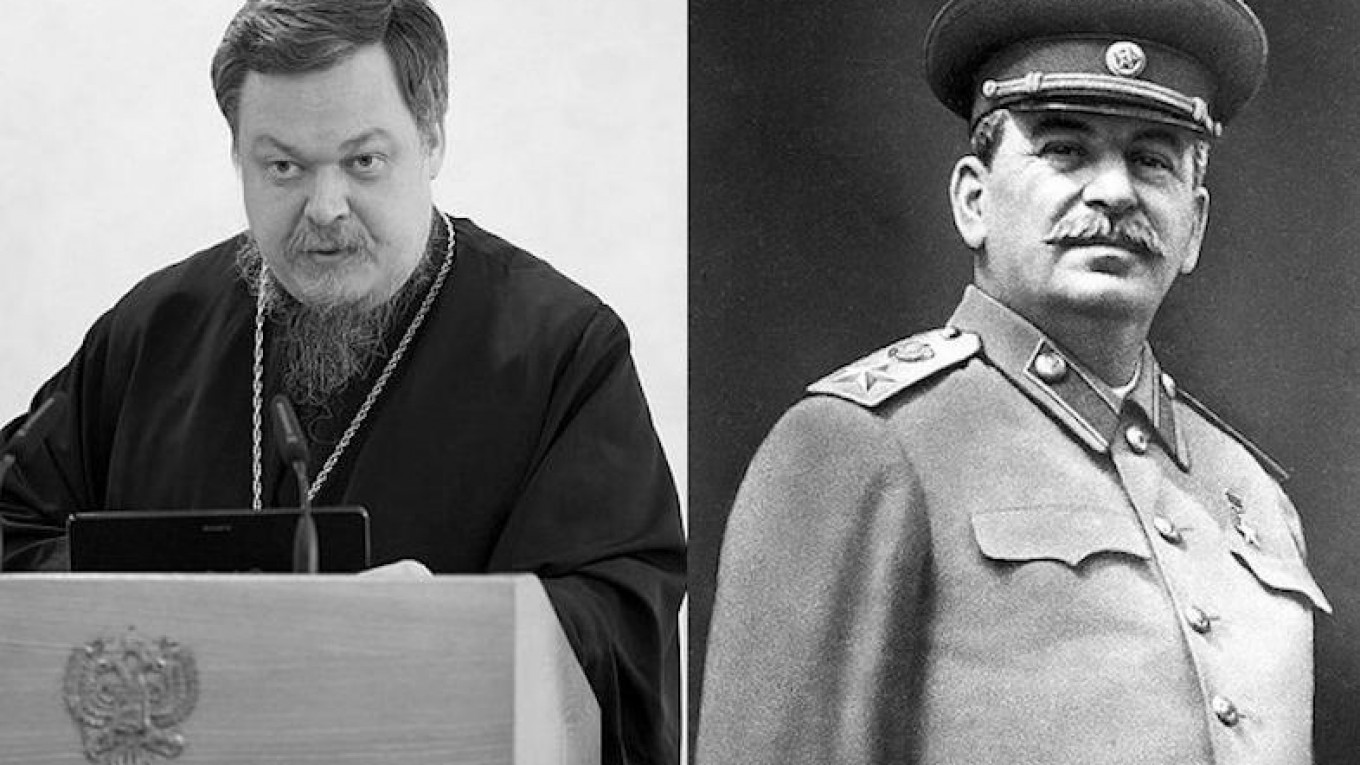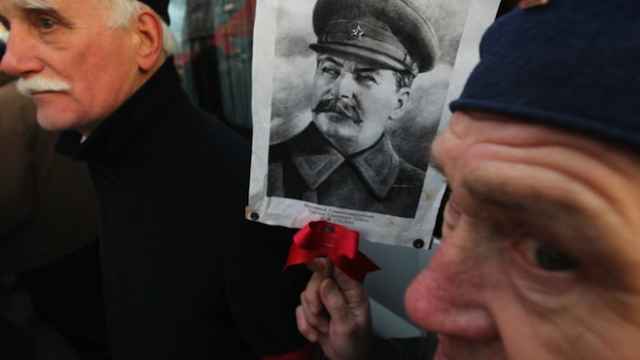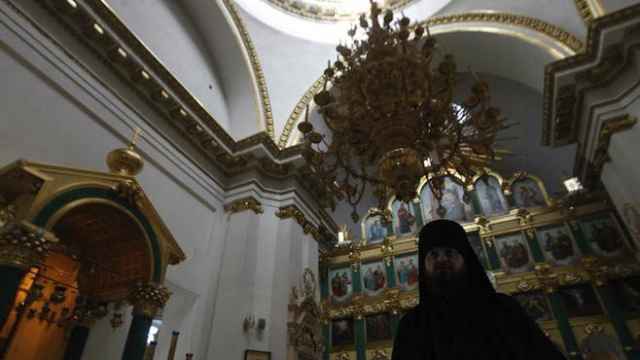Archpriest Vsevolod Chaplin of the Russian Orthodox Church is no stranger to controversy.
The staunchly conservative Orthodox priest has stuck his nose in everything from Kremlin involvement in eastern Ukraine to women's rights. He's claimed that women wearing short skirts “should not be surprised if they are raped,” and has railed against mixed-denomination Christian congregations.
But he outdid himself on Aug. 15, when he turned a question on a new statue dedicated to Ivan the Terrible into an ode to Stalin – dodging the question to declare both his support for the Soviet leader and the brutal purges in which millions of Russians were killed.
“He [Stalin] did a lot. At the end of it all, what's so bad about destroying some of [Russia's] internal enemies?,” said Chaplin on the Echo Moskvy radio station.
“There are some people you should kill. Even God, if we read the Old and New Testaments, directly authorized the destruction of a large number of people as a message to others. Not as a punishment or revenge, but as edification. Sometimes societies need the destruction of those who are worthy of destruction," he said.
Chaplin's words sent shockwaves across the Russian media, with many rushing to condemn him. Echo Moskvy has since pledged that Chaplin will no longer appear as a guest on their station, and a transcript of the interview was only released after a considerable social media debate by staff at the station.
Yet Chaplin is far from the only cleric to support the Soviet leader and his regime. Although he is now a fringe figure in the church, he previously held the high-ranking position of Chairman of the Synodal Department for the Cooperation of Church and Society, and remains a recognizable voice. His pro-Stalin position is one which many Russian religious figures share.
The Russian Orthodox Church has a complicated relationship with the former Soviet leader.
Stalin was behind a number of mass crackdowns on religion in the Soviet Union, which included the establishment of anti-religion magazines and the mass-arrest of the clergy. Of the 54,000 churches which existed in Russia prior to 1917, just 500 remained by 1941. A brief reprieve was granted during the Second World War, when the power of the church was harnessed to boost patriotic fervor in the face of the enemy, but Stalin once more tightened the noose after the Soviet victory.
Despite this conflict, the dictator's hardline approach appeals to many ultra-conservative church officials.
There is a trend of Church officials supporting Stalin, theologian Andrei Desnitsky told the Moscow Times. Such sentiment is nothing new. “Orthodox Stalinists are a whole group of people, and they first appeared in the 1990s,” Desnitsky said. “There are also people who see the appeal in certain parts of Stalin's rule: the firm hand, the single-mindedness, destroying enemies. Those people see Stalinism as something familiar and native.”
Stalin receives the same kind of support from the same sectors of Russian society, Desnitsky said: people who are unhappy with the injustices they are witnessing in the country and who see Stalin's “firm hand” as a solution. “Sociologically speaking, the Church reflects trends that take place in the society,” he said.
The question remains as to whether Chaplin, or those like him within the church, are truly sincere in their desire for Stalin-esque rule- and whether such feeling within the clergy could even be harnessed.
“Chaplin is a media friendly figure that, apparently, loves being the center of attention. But it is hard to tell whether he was sincere, or posing, or just following the trend,” Desnitsky said.
Chaplin is no longer a church official, and his recent controversial statements are represent his own buffoonery, says Father Andrei Kurayev, a famous Orthodox missionary and informal spokesman for the church's liberal wing. “There are quite a lot of people in the Church with similar views, and Father Vsevolod wants to become their voice,” Kurayev told The Moscow Times.
Most of the church's official statements on the matter are measured and neutral, unoffensive to either side. Even the head of the church, Patriarch Kirill, has been forced to address Stalin's legacy. Speaking in November last year, he said that while Stalin was responsible for Russia's revival and modernization, the leader had also done great wrongs.
“It is for the judgment of God,” said the Patriarch. “Just because a person has done bad things, it should never give us the right to exclude the positive things which that person achieved.”
A Message from The Moscow Times:
Dear readers,
We are facing unprecedented challenges. Russia's Prosecutor General's Office has designated The Moscow Times as an "undesirable" organization, criminalizing our work and putting our staff at risk of prosecution. This follows our earlier unjust labeling as a "foreign agent."
These actions are direct attempts to silence independent journalism in Russia. The authorities claim our work "discredits the decisions of the Russian leadership." We see things differently: we strive to provide accurate, unbiased reporting on Russia.
We, the journalists of The Moscow Times, refuse to be silenced. But to continue our work, we need your help.
Your support, no matter how small, makes a world of difference. If you can, please support us monthly starting from just $2. It's quick to set up, and every contribution makes a significant impact.
By supporting The Moscow Times, you're defending open, independent journalism in the face of repression. Thank you for standing with us.
Remind me later.







